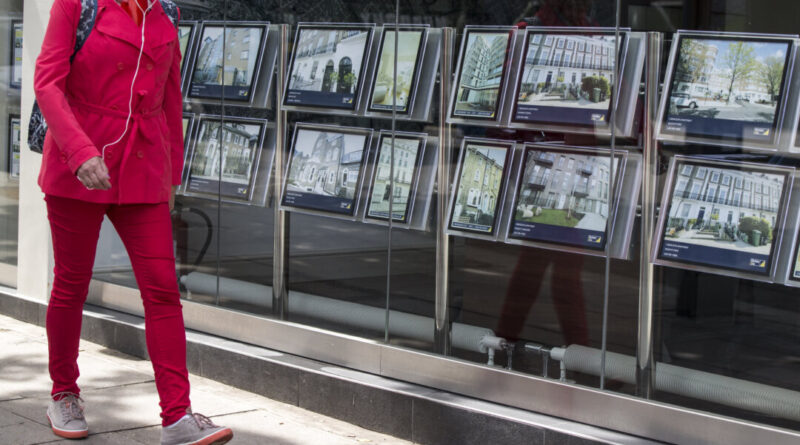BoE Reports Mortgage Payments Increasing for Three Million Households
Around 400,000 households will experience a significant increase in mortgage costs, with some seeing a rise of 50 percent or more.
According to the Bank of England, mortgage payers nearing the end of fixed-rate deals will face higher payments over the next two years.
The impact of rising interest rates since 2021 will affect all mortgagors transitioning off a fixed rate between June 2024 and the end of 2026.
These individuals are projected to see their mortgage payments rise by approximately £180, representing a 28 percent increase.
Around 400,000 households are expected to face a payment increase of 50 percent or more.
The bank also reported that the percentage of households falling behind on mortgage payments remains low compared to historical standards.
Renters are also facing financial pressure due to the increased cost of living and higher interest rates, currently standing at 5.25 percent, the report pointed out. The percentage of renters falling behind on payments rose from 15.7 percent in the first quarter of 2023 to 16.5 percent in the first quarter of 2024.
Private rents saw an 8.9 percent surge over the year leading up to April, according to the report.
Economists anticipate a base rate drop from 5.25 to 5 percent by August. However, with a large number of households set to refinance in the next two years, more families are expected to allocate a significant portion of their income towards mortgage payments.
Speculation of a summer interest rate reduction could prompt lenders to lower the rates offered to borrowers.
This week, HSBC, NatWest, and Barclays have reduced the cost of fixed-rate home loans for new agreements.
The financial stability of both borrowers and lenders can impact the overall financial landscape. This includes scenarios where heavily indebted households and businesses struggle to meet payments, resulting in defaults or significant reductions in consumption, investment, or employment.
The bank stated that, overall, both household and corporate borrowers have shown resilience to the impact of higher rates.
First-Time Buyers
Meanwhile, individuals looking to purchase their first home in the UK need an average household income exceeding £60,000, according to property site Zoopla.
The average price of a home in the UK is £250,000, with variations based on region. Prospective buyers in London must have a household income of £103,000 to afford the average price of £425,000.
First-time buyers are also facing higher mortgage costs, which have surged by 61 percent since the last general election in 2019.
Research by Rightmove indicates that the typical first-time buyer’s monthly expenses have increased from £667 to £1,075.
With the general election approaching, the Conservatives, Labour, and the Liberal Democrats have committed to constructing at least 1.5 million new homes over the next Parliament.
All three parties have pledged to prohibit no-fault evictions for renters and overhaul or eliminate the leasehold system.
The Tories intend to introduce a new Help to Buy scheme and a mortgage guarantee scheme, with Labour proposing similar initiatives.





